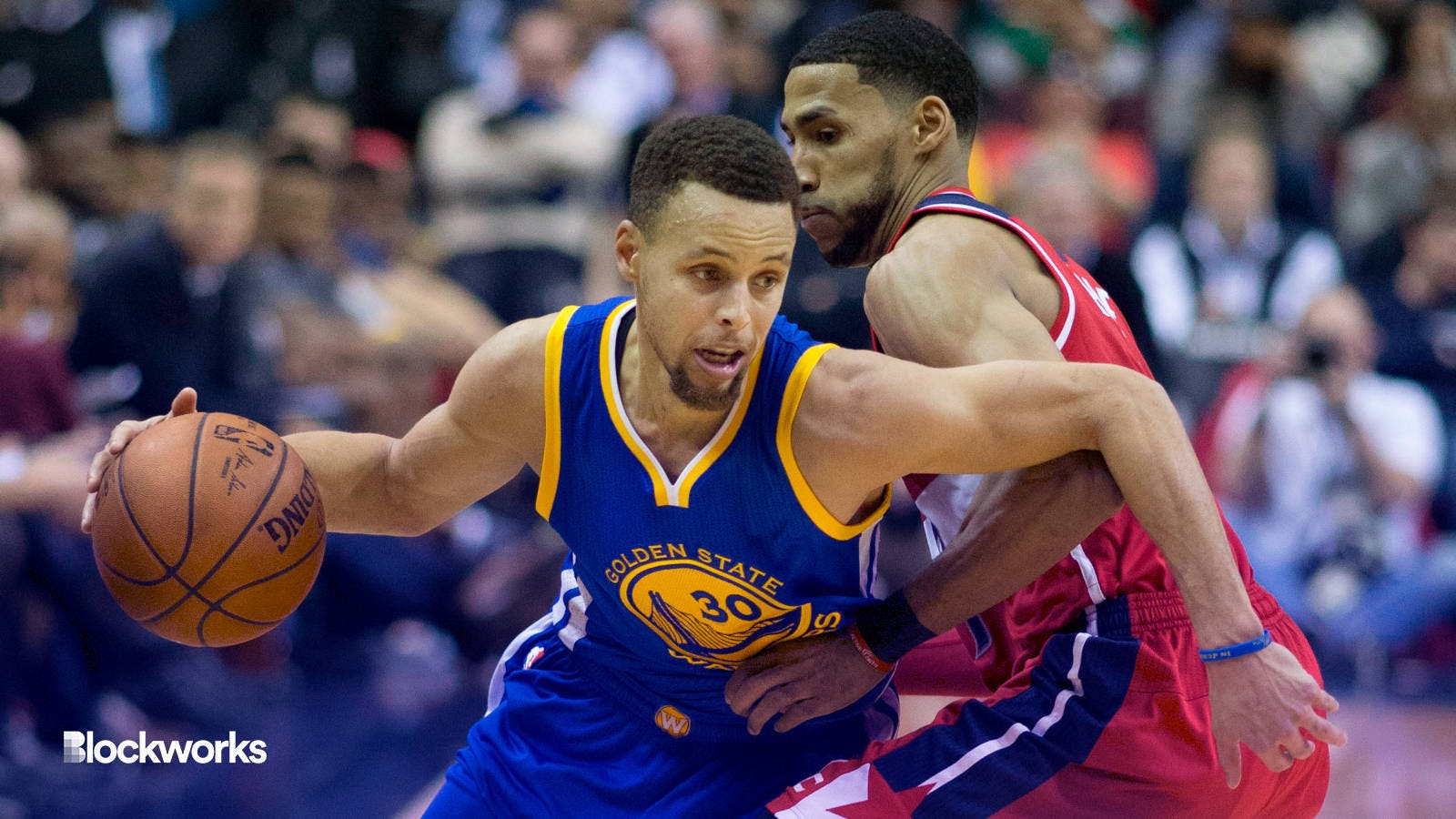Golden State Warriors, Steph Curry face class-action lawsuit from FTX investors
The lawsuit claims legendary NBA team Golden State Warriors financially benefited from promoting disgraced crypto exchange FTX

Photo by Keith Allison(CC BY-SA 2.0) modified by Blockworks
NBA’s Golden State Warriors and Stephen Curry are facing a class action lawsuit over the collapse of FTX.
The class action lawsuit claims that both the Golden State Warriors and Curry engaged in a conspiracy that “substantially assisted or encouraged the wrongdoing conducted by the FTX Group.”
“The FTX Group and Defendants made numerous misrepresentations and omissions to Plaintiffs and Class Members about the deceptive FTX platform in order to induce confidence and to drive consumers to invest in what was ultimately a Ponzi scheme,” the lawsuit claims.
They also claim that the Warriors “did not disclose that they were being compensated by FTX for promoting the sale of unregistered FTX securities.”
The basketball franchise also allegedly “had a financial incentive to induce Plaintiffs to invest with FTX” because it was an international rights partner.
In 2021, the team announced a partnership with FTX. Sam Bankman-Fried’s exchange started as the official cryptocurrency platform and NFT marketplace of the Golden State Warriors.
In April 2022, the Warriors offered an NFT collection in partnership with FTX. Because the collection was minted on FTX, fans “must have had a FTX US account to mint and participate in the 1-of-1 auction.”
In addition, the partnership with Shaquille O’Neal and the Astrals NFT project he developed with his son, Myles O’Neal, required investors to have a “funded FTX account” in order to participate in the sale.
Stephen Curry, one of the stars on the team, notched a global ambassador deal with FTX in September 2021.
The lawsuit claims that Curry was ”paid, at least in part, in FTX stock and/or stock options – the value of which depended on the financial success of FTX.” Therefore, he had incentive to promote the former crypto exchange.
After FTX declared bankruptcy in November of last year, the Golden State Warriors axed their deals with FTX.
The Golden State Warriors aren’t the only sports team to be targeted in crypto-related lawsuits. Mark Cuban and his team, the Dallas Mavericks, faced a lawsuit from Voyager customers after the crypto lender also declared bankruptcy.
The lawsuit also claims that Voyager was a “massive Ponzi scheme.”
The suit alleges that the Mavericks and Cuban “teamed up” with Voyager and made “false representations and [employed] other means of deception. As a result, the Voyager plaintiffs and Voyager class members all sustained losses in excess of $5 billion.”
Curry has been mentioned in another class action lawsuit involving FTX, which was made infamous by Shaquille O’Neal after he managed to evade process servers for months before being served in the former FTX Arena.
Get the news in your inbox. Explore Blockworks newsletters:
- The Breakdown: Decoding crypto and the markets. Daily.
- 0xResearch: Alpha in your inbox. Think like an analyst.






